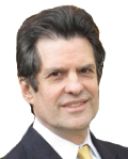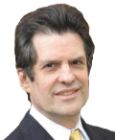Family Dynamics
The Family Dynamics of Severe Child Abuse
How can abused children grow up to be abusive parents?
Posted November 2, 2011 Reviewed by Ekua Hagan
One of the most mind-boggling and difficult-to-understand phenomena in all of psychology is how some parents seem to go out of their way to severely abuse, physically and/or sexually, their own children.
I am not speaking of those abusive parents who are unstable and overreact to their children's frustrating behavior and beat them, but about those parents who seem to make a highly conscious decision to continually and methodically hurt their children in some way.
One example was a father who raped and sodomized his daughter the moment she first had her period, causing a great deal of tissue damage in the girl. The mother of the girl responded by putting the daughter on birth control pills, so the father could continue to rape her without fear of impregnating her, and then gave her a copy of a novel to read about a female child who was born evil and committed various heinous crimes.
I often hear of mothers of girls who were themselves sexually abused by their own fathers blithely allowing the old men to babysit their granddaughters with no one else present. This is an obvious set up for the child to be abused, and seemingly a nicely-wrapped gift to the abusive men as well.
Many people hear about such stories but refuse to believe them. I have even heard professionals cite obviously phony stories about people who claim that they were ritually abused by cults that even murder children to "prove" that individuals are lying or are being led by the nose by unscrupulous therapists when they tell stories of having been abused as children. (The complete absence of dead or missing babies is, forgive the pun, a dead giveaway that nothing of the sort had ever really happened). I have even heard these so-called "experts" equate stories of child abuse with those individuals who claim to have been abducted by aliens.
Talk about invalidating the victims of abuse!
We do know that most severely abusive parents were themselves abused as children, but that just deepens the mystery of how anyone could do such a thing.
First of all, the majority of abused children do not go on to abuse their own children. Some even decide never to have children for fear that they might become abusive to their own children just like their parents were. Others go to the opposite extreme and become so overprotective of their children that they end up snuffing out their children's ability to grow up. And many others become model parents.
Second, those who have suffered abuse themselves should, of all people, know how devastating it was. They should find this behavior even more reprehensible than does the average man or woman on the street. How could they turn around and do this to their own babies?
And yet they do.
Such people do not generally come to therapy themselves to find out what drove them to act in such heinous ways, so therapists such as myself are left to theorize about the reasons for their behavior on the basis of descriptions and histories provided by their victims, and on the basis of discovering the family dynamics of those patients who have abused or neglected their children in much more subtle and far milder ways.
So, I must admit that my ideas about the nature of the role these folks are playing in their dysfunctional families is far more speculative than the descriptions of dysfunction family roles in my previous posts. But sometimes speculation can generate very useful theories. With this caveat in mind, I present the role of the monster.
One clue as to the nature of the family dynamics of severe abusers is some of the public behavior of previously-abused individuals who form advocacy groups. Rather than invalidate claims of abuse by minimizing them, such individuals often seem to go to the opposite extreme and exaggerate the incidence of abuse. One estimate I saw asserted that the combined incidence of verbal, psychological, physical and sexual abuse in the childhoods of individuals in this country is 80 percent!
A few years ago, child abuse was "defined downwards" to include the most insignificant of infractions — something that we still see today. The ˆDr. Phil television show on September 18, 2008, featured the case of a mother who was accused by authorities of child endangerment because she had left her two-year-old child in a car for a couple of minutes to go 30 feet away to deposit some money in a Salvation Army can. She had never lost sight of the child, and it was sleeting outside, and yet she was actually arrested.
It seemed that many people could not differentiate between a light spanking and a vicious beating. Some sexual abuse statistics counted cases of parents stroking a child's leg. If someone even appeared to be trying to make sexual contact but did not, that has also been counted in some estimates. A case of a father accidentally brushing against his teenage daughter's breasts might be counted as a case of sexual abuse if any doubt at all existed about whether or not the contact was accidental. Fathers became afraid to hug their own daughters for fear of being accused of incest.
Why did those who actually were abused and their advocates exaggerate in such a manner? My guess is that victims (or "survivors") of significant abuse secretly want to think that their families are not as sick or evil as the abuse might suggest, and therefore want to believe that almost every parent acts that way at one time or another. In a sense, they are trying to normalize and de-pathologize their parents' abusive behavior for this reason, and in so doing make their parents seem more human to them.
Other people who claim to be abused end up making their families look reasonable and themselves look bad. They often do that by making claims of abuse that are clearly not credible.
Comedienne Roseanne Barr, for example, went public with abuse accusations against her parents, and claimed to have specific memories of being sexually abused by her father when she was only six months old. Since no one has or can have memories from this age, the public probably started to feel sorry for her put-upon parents rather than for her.
Of course, just because that particular "memory" was false does not prove that she was not a victim of child abuse at all.
My theory about those severely abusive parents who were abused themselves as children and who later adopt the role of monster is that they are trying to protect their own parents from their own anger. They say to themselves, in effect, that "If I'm just like them, who am I to criticize them?''
One thing that can be said of child abusers is that everyone else loves to hate these people. Occasionally abusers may even brag about their misdeeds so that other people are fooled into thinking they are actually proud of them and therefore hate them all the more.
A good example of this was seen in a 2000 HBO documentary called Just, Melvin: Just Evil. A man who had systematically sexually abused several members of his own family with devastating results was interviewed. Ostensibly, he denied doing anything, despite the on-camera descriptions of his monstrous behavior by several of the involved family members. Yet he seemed strangely proud of himself.
Such a man is not "in denial" about the evil he inflicted. He knows very well that what he did was wrong, and that seeming proud of it would turn him into "the man most hated in the universe" in the eyes of anyone watching the film. He was making himself into a "monster." He wanted his family to hate him. Despite their protests to the contrary, monsters want to believe that they deserve hatred from everyone.
Why? I believe they are trying to take the heat off their own abusive parents by playing the monster role. The monster is in effect saying, "It was OK that you abused me because look how awful I am. I clearly deserved whatever it was that you dished out to me. I even do the exact same things you did. In fact, I did things to my kids that are actually much worse than what you did to me."
As an aside, by pushing adult children away by being hateful through denying that anything untoward happened or through seeming happy with themselves, monsters are actually trying to do their children a favor by pushing them away (i.e., distancing). Unfortunately, this does not make their children feel better about themselves.
The idea that victims of parental abuse may want to protect their own parents and make their children hate them — a bizarrely altruistic rather than a selfish motive for their behavior — may seem at first to the reader to be far-fetched. Readers of my posts know that I believe people will sacrifice themselves for their families of origin, and that they will even sacrifice their own children, as I discussed in my post about kin selection.




